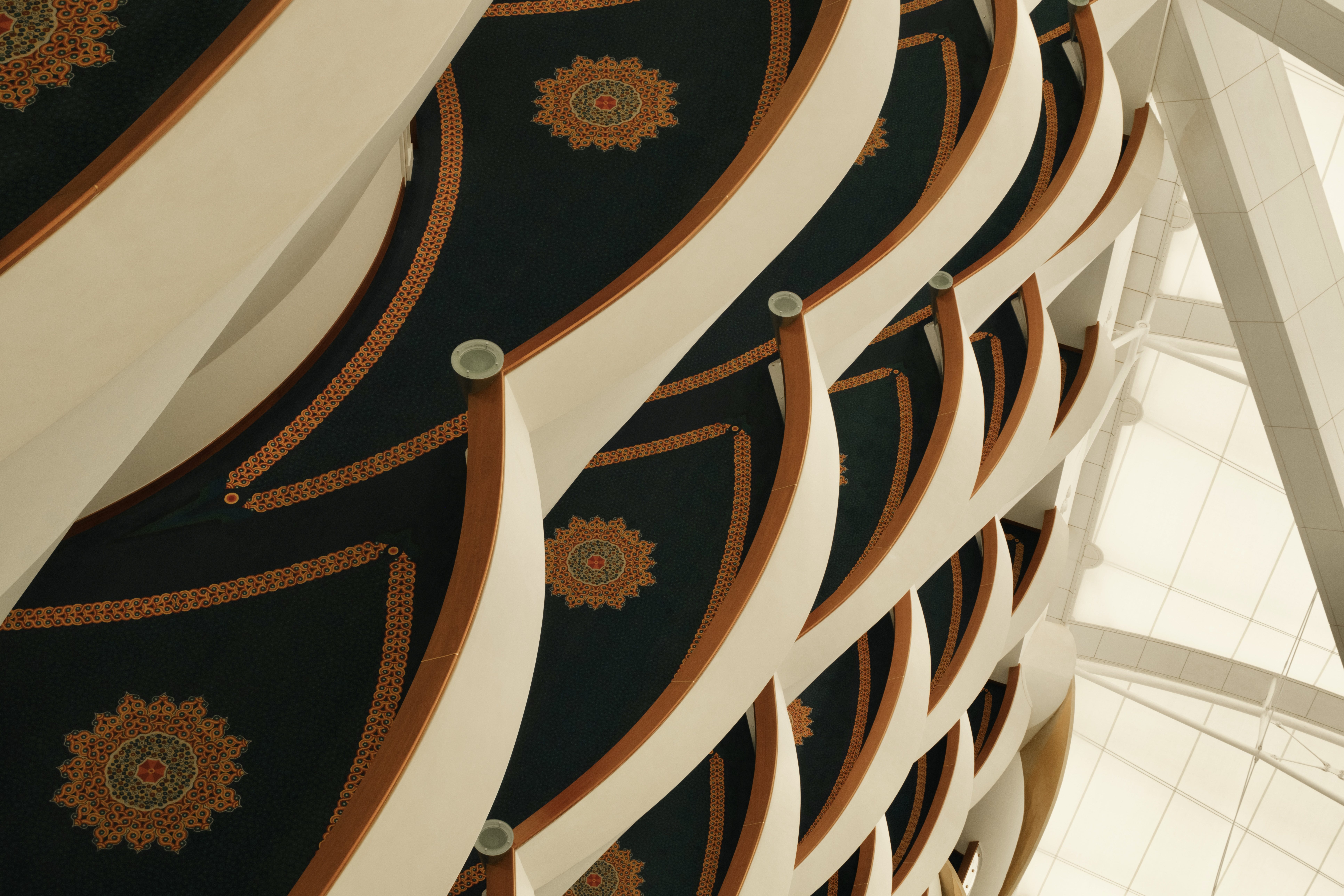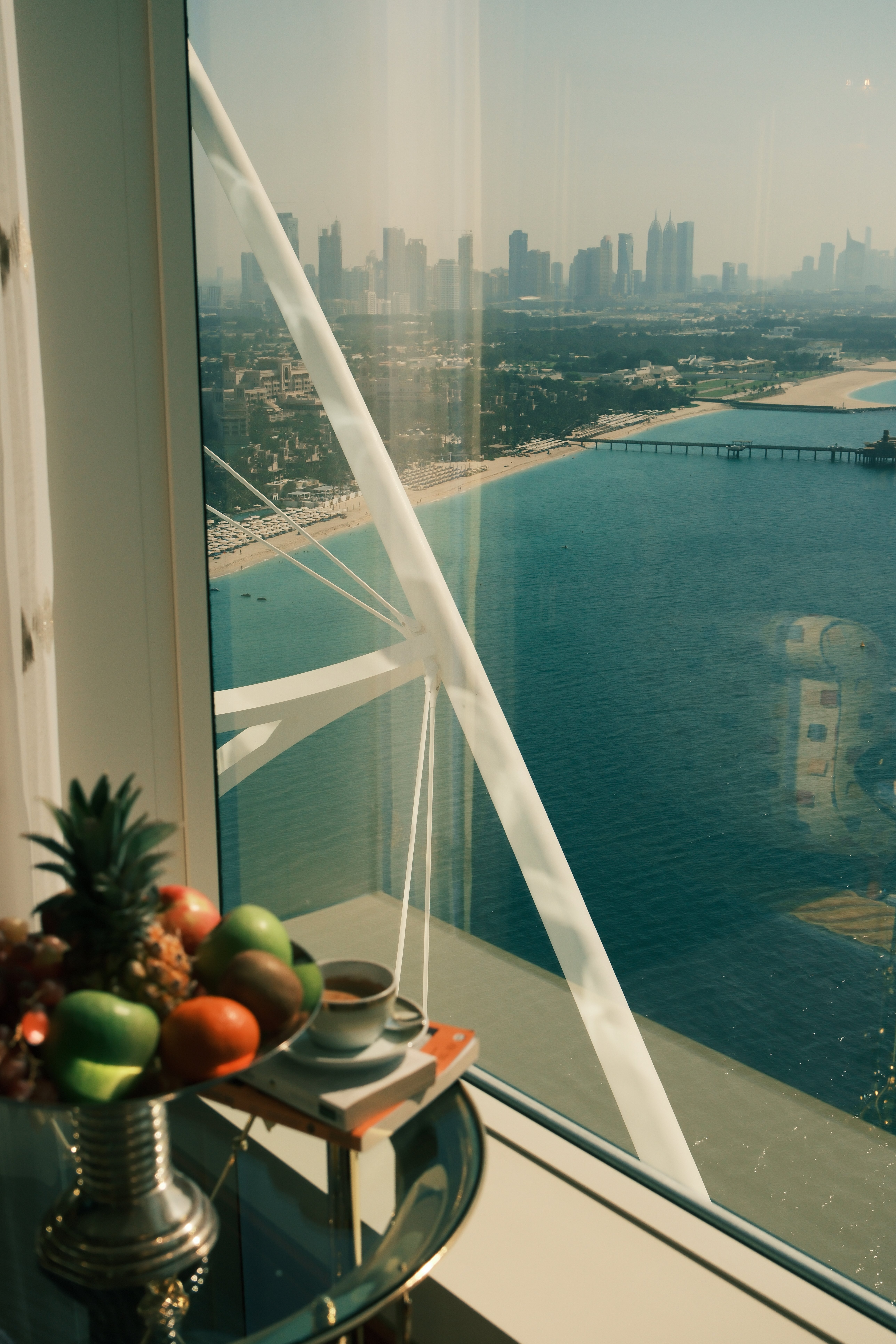


We're all familiar with the concept of a five-star hotel — maybe you've even stayed in one of those titans of hospitality. But a “seven-star hotel” might sound fantastical because, officially, it doesn’t exist!
Hotel star ratings have evolved over nearly a century, with various organizations developing their own criteria. In 1958, the Mobil Travel Guide introduced its influential five-star system in America, helping establish star ratings as a global benchmark for luxury. However, with no single international authority regulating these ratings, interpretations of what constitutes each star level can vary significantly across regions and rating bodies.
So, how did the “seven-star” idea come about? It’s a title some properties use to suggest an extraordinary experience. It’s an unofficial rating that has quickly gained traction in the media and popular culture. And perhaps no hotel embodies this ethos more boldly than Dubai’s Burj Al Arab, one of the world's first seven-star hotels. Are you ready to step into the myth?

Since its opening in 1999, the Burj Al Arab has advertised that it isn't just a hotel—it's a statement of ambition. Rising 1,053 feet above the Persian Gulf (also known as Arabian Gulf) on a human-made island, it became one of the world’s tallest and most expensive hotels at the time of its completion, with a $1 billion price tag.
Its sail-shaped silhouette quickly became an icon of Dubai, but the “seven-star” title captured imaginations. Rumor has it that an enchanted journalist coined the term after visiting; struggling to describe the sheer opulence, she referred to it as a seven-star hotel. While the article is lost to history, the nickname has remained.
Reaching the hotel is an experience in itself. Crossing a private bridge over crystalline waters, you’re greeted by a concierge in a gold-threaded kandora, a traditional Emirati robe, who welcomes you into a world of indulgence. Here, maximalism reigns supreme, and more really is more.


The Burj Al Arab redefines room categories by offering only suites. Each of the 202 duplexes feature dramatic staircases and floor-to-ceiling windows framing panoramic views of Dubai’s skyline and the endless Persian Gulf.
Inside, gold accents gleam against rich hues of blue and purple. Mosaic-lined bathrooms are stocked with Hermès toiletries, and gold-plated taps elevate simple rituals. The eiderdown duvets—crafted from abandoned nests in Iceland—are among the rarest in the world, with only 2,000 kilograms of feathers harvested annually. For a truly personalized experience, guests can choose from nine types of pillows for a perfect night’s sleep.


The Burj Al Arab has eight dining venues, each offering an unforgettable experience. Start with a sunset cocktail at the Skyview Bar, where panoramic views of Dubai set the stage for a remarkable evening.
For dinner, Michelin-starred Al Muntaha serves French-Italian creations like the Bottini Surf and Turf, a decadent foie gras, king crab, and truffle broth dish. For a more immersive experience, dine at Ristorante L’Olivo, where a vibrant aquarium surrounds you with marine life as you savor Mediterranean-inspired dishes.

Step into the Burj Al Arab, and you’re stepping into a work of art. The hotel is home to the world’s largest Swarovski crystal ceiling, with 21,000 crystals representing the Milky Way, worth over USD 350,000.
Throughout the property, over 24,000 square meters of Statuario marble, like that used by Michelangelo, create an aura of timeless elegance. Even the floral arrangements showcase luxury. A team of florists spends hours crafting displays tailored to each guest’s preferences, ensuring your suite feels personal and indulgent.

On the 18th floor, the Talise Spa redefines relaxation. This two-floor retreat offers infinity pools, Jacuzzis, and steam rooms, all with breathtaking views of the Persian Gulf.
For a leisurely experience, head to The Terrace, a groundbreaking 10,000-square-meter platform constructed in Finland and shipped to Dubai in six pieces. The area features two pools adorned with 10 million gold and azure mosaic tiles, private cabanas, and an imported white-sand beach. It is a marvel of engineering and boldness.
Amid its extravagance, the Burj Al Arab embraces sustainability. One standout initiative is the Dubai Turtle Rehabilitation Project, which has rescued and released over 1,600 sea turtles since 2004. This program, in collaboration with Dubai’s Wildlife Protection Office, underscores the hotel’s commitment to preserving the natural world.

True to its grandiose reputation, the hotel made headlines in 2016 by unveiling the world’s largest tin of caviar—a 37.5-pound masterpiece of organic Empress caviar sourced from sustainably raised sturgeon. That’s as heavy as 34 bottles of wine!
The Burj Al Arab isn’t just a hotel—it’s a world unto itself. From its jaw-dropping design and unparalleled service to its dedication to personalizing every detail, it delivers an experience that transcends the most luxurious expectations. But, despite its seven-star reputation, it’s officially rated as a five-star hotel.
Did you enjoy reading this content? Embark on a journey to fuel your wanderlust and subscribe to Inspired Stays, a free weekly newsletter showcasing the world’s finest hotels.